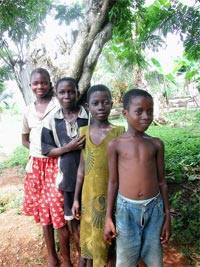by Sofia Sayabalian
Having the opportunity to visit Reykjavík, Iceland was a special one. I always thought of Iceland as an isolated place–far, freezing, and frosted with whispers…
by Sofia Sayabalian
Having the opportunity to visit Reykjavík, Iceland was a special one. I always thought of Iceland as an isolated place–far, freezing, and frosted with whispers…
by Paul Andrews
Art and culture are the treasure houses of our deepest dreams - not the fleeting dreams of power and empire, which can never satisfy what is best in us, but our deep soul-dreams, from which generation…

Children in Ghana are being raised in a ‘dialogue of life’ that makes religious differences a source of friendship, not conflict. [Source]
A religious revolution has emerged in many local African communities and nations as a whole in the last one hundred years or so. Within the period, various religions have come to live in closer proximity with one another than they had during the previous century. African towns and cities now collaborate with churches and mosques and to a lesser extent traditional/primal religious activities.
Subsequently, at the present time, people of different faiths encounter one another more often in both structured and unstructured ways. For example, in many homes across Ghana and the Gambia, it is common to find followers of African indigenous religions, Christianity, and Islam – with all the different groups of Christianity and Islam living together. By extension such relations are carried to the larger village or town community.